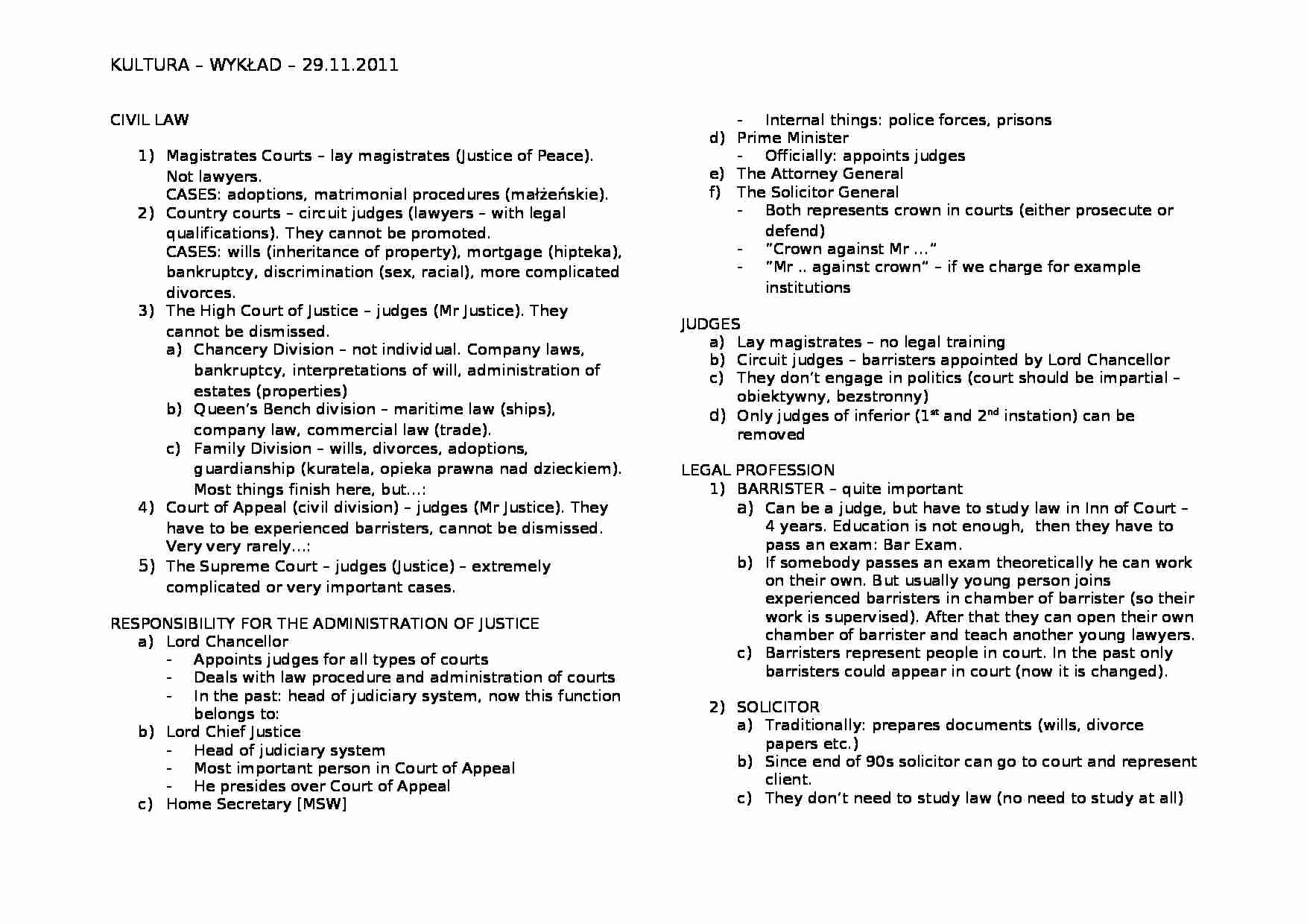To tylko jedna z 2 stron tej notatki. Zaloguj się aby zobaczyć ten dokument.
Zobacz
całą notatkę


CIVIL LAW
Magistrates Courts - lay magistrates (Justice of Peace). Not lawyers. CASES: adoptions, matrimonial procedures (małżeńskie).
Country courts - circuit judges (lawyers - with legal qualifications). They cannot be promoted. CASES: wills (inheritance of property), mortgage (hipteka), bankruptcy, discrimination (sex, racial), more complicated divorces.
The High Court of Justice - judges (Mr Justice). They cannot be dismissed. Chancery Division - not individual. Company laws, bankruptcy, interpretations of will, administration of estates (properties)
Queen's Bench division - maritime law (ships), company law, commercial law (trade).
Family Division - wills, divorces, adoptions, guardianship (kuratela, opieka prawna nad dzieckiem). Most things finish here, but…:
Court of Appeal (civil division) - judges (Mr Justice). They have to be experienced barristers, cannot be dismissed. Very very rarely…:
The Supreme Court - judges (Justice) - extremely complicated or very important cases.
RESPONSIBILITY FOR THE ADMINISTRATION OF JUSTICE
Lord Chancellor
Appoints judges for all types of courts
Deals with law procedure and administration of courts
In the past: head of judiciary system, now this function belongs to:
Lord Chief Justice Head of judiciary system
Most important person in Court of Appeal He presides over Court of Appeal
Home Secretary [MSW]
Internal things: police forces, prisons
Prime Minister
Officially: appoints judges
The Attorney General
The Solicitor General Both represents crown in courts (either prosecute or defend)
“Crown against Mr …” “Mr .. against crown” - if we charge for example institutions
JUDGES
Lay magistrates - no legal training
Circuit judges - barristers appointed by Lord Chancellor
They don't engage in politics (court should be impartial - obiektywny, bezstronny)
Only judges of inferior (1st and 2nd instation) can be removed
LEGAL PROFESSION
BARRISTER - quite important
Can be a judge, but have to study law in Inn of Court - 4 years. Education is not enough, then they have to pass an exam: Bar Exam.
If somebody passes an exam theoretically he can work on their own. But usually young person joins experienced barristers in chamber of barrister (so their work is supervised). After that they can open their own chamber of barrister and teach another young lawyers.
Barristers represent people in court. In the past only barristers could appear in court (now it is changed).
... zobacz całą notatkę




Komentarze użytkowników (0)